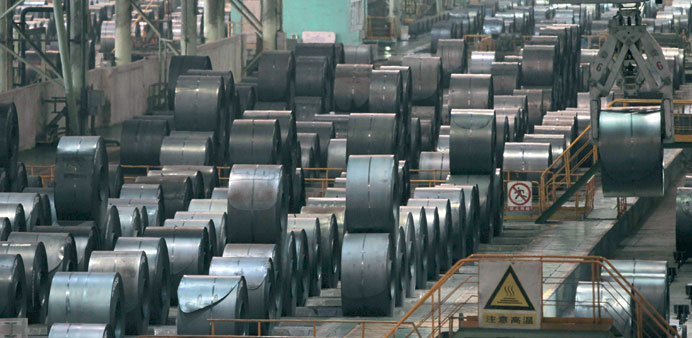Banks are withdrawing from Europe’s troubled steel sector, putting the survival of even some of the most established industry players at risk and forcing companies to seek alternative funding sources.
Austerity measures to reduce debt in the EU has crimped construction and manufacturing in the region, battering steel demand.
Now, the financial sector’s reluctance to lend to the steel industry is threatening billions of euros of existing loans, as well as future funding, sources said this week.
Stemcor, the world’s largest independent steel trader, has given way to the darkening outlook, as expectations for pickup in 2013 have so far failed to materialize.
Having failed to refinance an $850mn loan the company is now seeking a standstill agreement with banks under which banks agree not to ask for repayment and work with the company to restructure the debt or extend its maturity.
This follows the collapse of smaller steel players such as traders Balli and Carbofer, which were also starved of funds, and comes as Spanish producer Celsa heads towards restructuring according to advisers and Ukranian producer Industrial Union of Donbass continues debt restructuring talks.
Celsa could not immediately be reached for comment.
As there is little hope of a prompt recovery for steel, which is a key indicator of industrial activity, things are likely to get even tougher.
“Getting funds will be the main problem for steel companies in the next few years. Banks are trying to reduce their exposure...if not to get out altogether,” said Massimo Bolfo, chairman of steel trading firm Trasteel.
“They have told us clearly they still like base metals and raw materials, but today steel is not sexy.”
Trasteel recently cut jobs and hired a new chief financial officer, whose main role will be to “seek more creative ways” to get financing, Bolfo said.
Others in the market are looking at ways to keep their business afloat.
German special steel producer Schmolz + Bickenbach is seeking an equity injection.
Russian Tycoon Viktor Vekselberg, owner of industrial group Renova, has offered to inject €350mn into the firm, which may attract rival offers of fresh equity from aggressive distressed funds including Oaktree Capital Management. Shareholders however seem unhappy with this solution which would dilute their equity stake.
Other firms said they are relying more on loans from insurance companies to minimise their credit risk, or direct lending from credit funds although the interest margins and fees they charge are much higher than the banks.
Debt factoring, where companies sell invoices to a third party at a discount, has also become more popular as a financing option.
Companies such as Spanish stainless steel maker Acerinox are using it in an effort to reduce working capital and keep debt under control.
The financing issues are not dogging only medium and small companies.
Highlighting the deep crisis in European steel, India’s Tata Steel, Europe’s second largest steel producer, this week booked a $1.6bn impairment charge to reflect the weak market conditions in Europe.
Other regions are also having a bumpy ride.
Overcapacity, even in top consumer China, which has been churning out almost half of the world’s annual production of 1.5bn tonnes a year, has reached alarming levels.
As China reaches a more mature phase of its development it will spend a smaller portion of its GDP on steel, while demand for other metals such as copper, used intensively in later stages of development, should perform better, according to Citi analysts Mike Flitton and Tom O’Hara.
“Underlying demand does not appear to back up record levels of steel output — marginal producers in China have been making negative cash margins since the beginning of the year, which will clearly impact finances,” O’Hara said.

